“The only thing standing between you and outrageous success is continuous progress you need discipline.” – Dan Waldschmidt
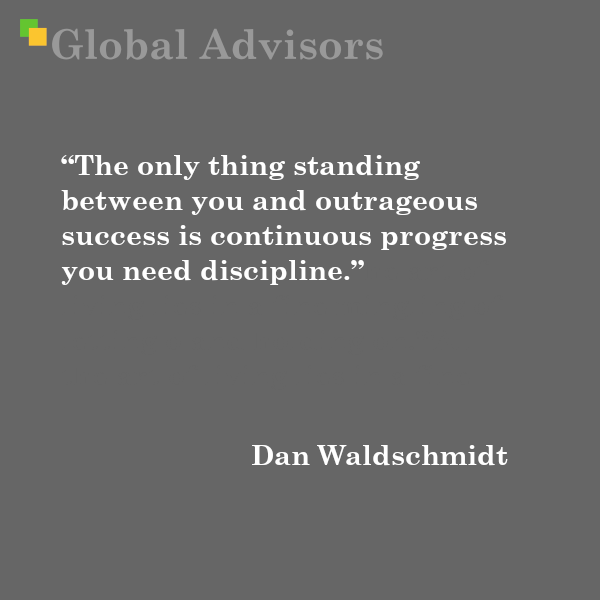
“The only thing standing between you and outrageous success is continuous progress you need discipline.” – Dan Waldschmidt

“One day you will wake up and there won’t be any more time to do the things you’ve always wanted. Do it now.” – Paulo Coelho
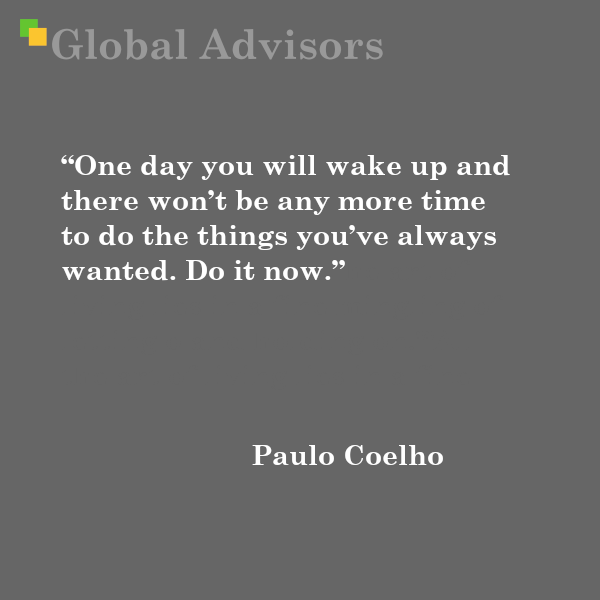
“Although no one can go back and make a brand-new start, anyone can start from now and make a brand-new ending.” – Carl Bard
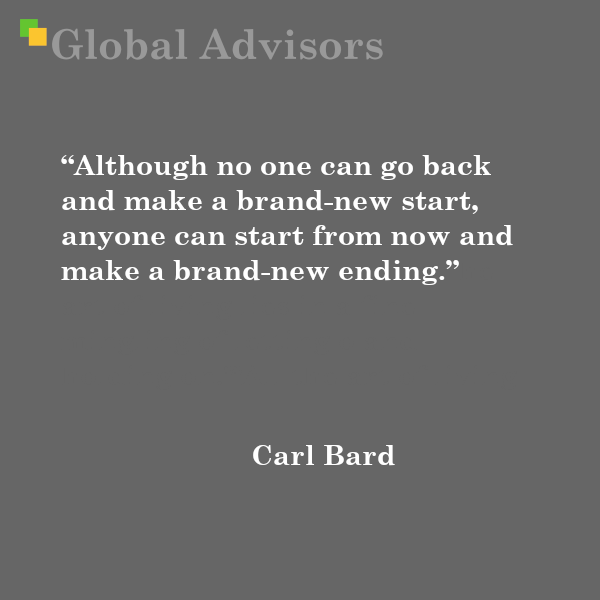
“Resolve to keep happy, and your joy and you shall form an invincible host against difficulties.” – Helen Keller

“Your work is going to fill a large part of your life, and the only way to be truly satisfied is to do what you believe is great work. And the only way to do great work is to love what you do.”
Steve Jobs
Market Segmentation:
Market segmentation is a marketing strategy that involves dividing a broad target market into subsets of consumers who have common needs, interests, or characteristics. The purpose of segmentation is to better understand and meet the specific needs of different customer groups, thereby improving targeting, product development, and overall marketing effectiveness….
Read more – https://globaladvisors.biz/2024/02/28/term-market-segmentation/
“Without a plan, even the most brilliant business can get lost. You need to have goals, create milestones, and have a strategy to set yourself up for success.” – Yogi Berra
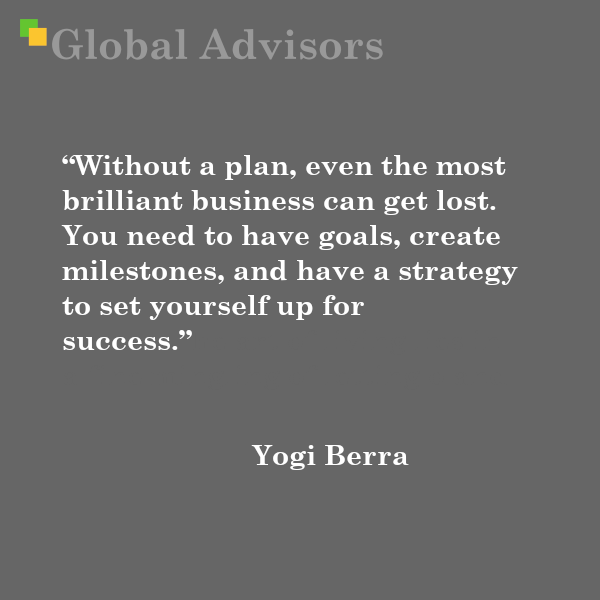
“Innovation is the ability to see change as an opportunity, not a threat.” – An Wang
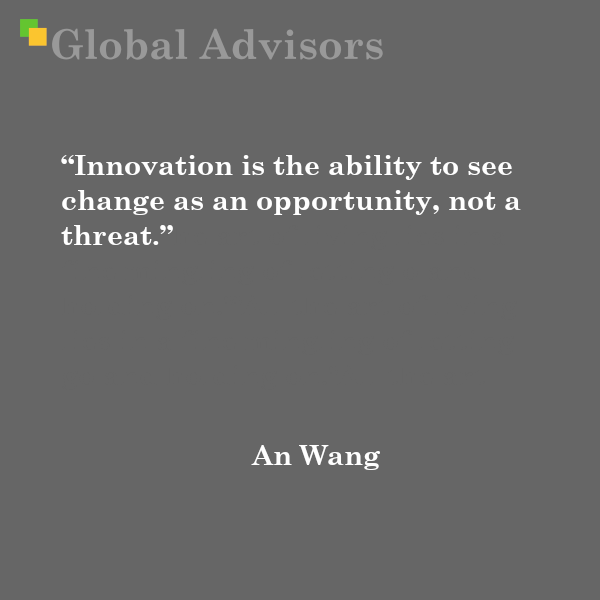
“The thing that keeps a business ahead of the competition is excellence in execution.” – Tom Peters
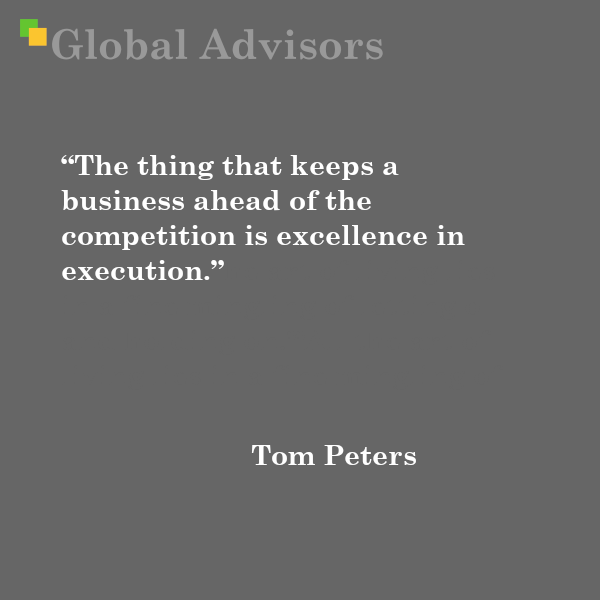
“The biggest concern of an organization should be when their most passionate people become quiet.” – Tim McClure
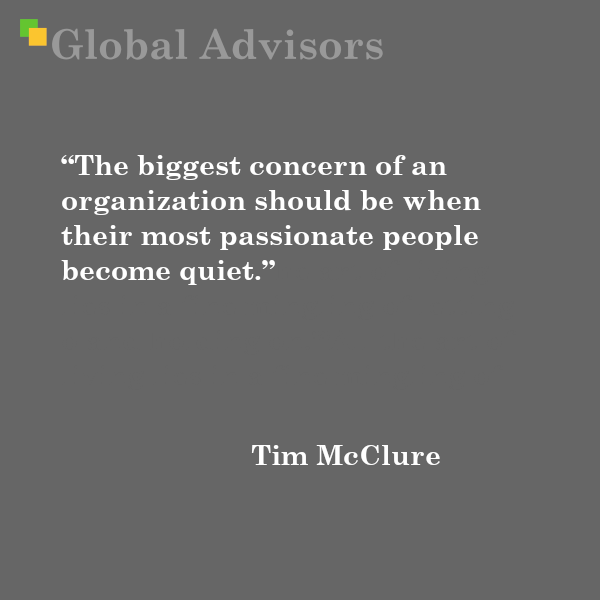
“Leadership is about solving problems. The day employees stop bringing you their problems is the day you have stopped leading them. They have either lost confidence that you can help or conclude you do not care. Either case is a failure on leadership.” – Colin Powell
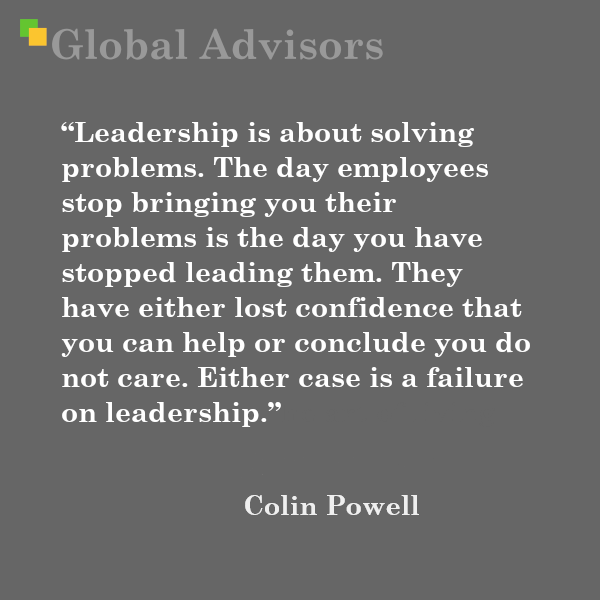
“Leaders who don’t listen will eventually be surrounded by people who have nothing to say.” – Andy Stanley

“The first half of life is devoted to forming a healthy ego, the second half is going inward and letting go of it.” – Carl Jung
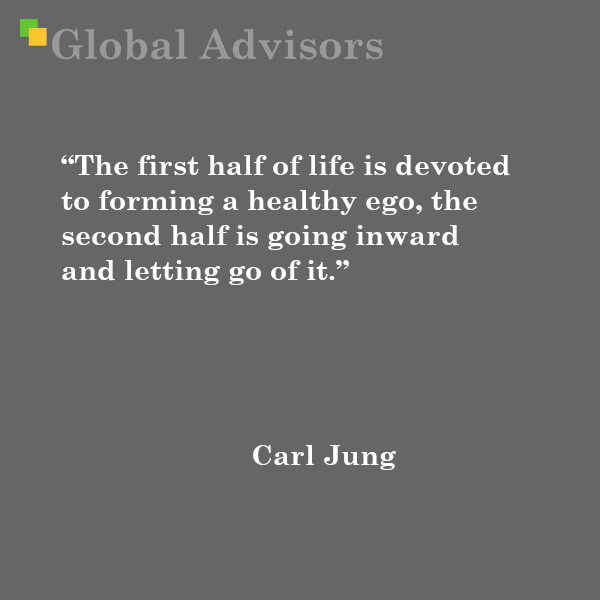
“Sometimes a hypocrite is nothing more than a man in the process of changing.” – Brandon Sanderson
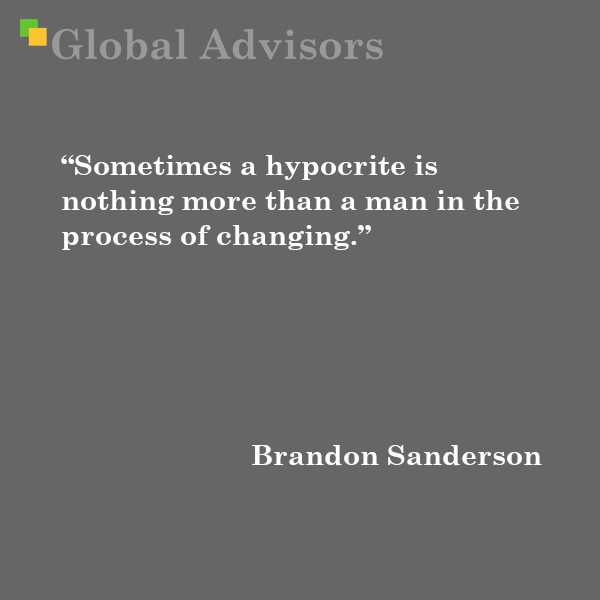
“Whichever your personal style, you can be an excellent leader. Being aware of your natural style can help you stand between a situation and your response.” – Marc A. Pitman

“Improvement begins with I.” – Arnold Glasow
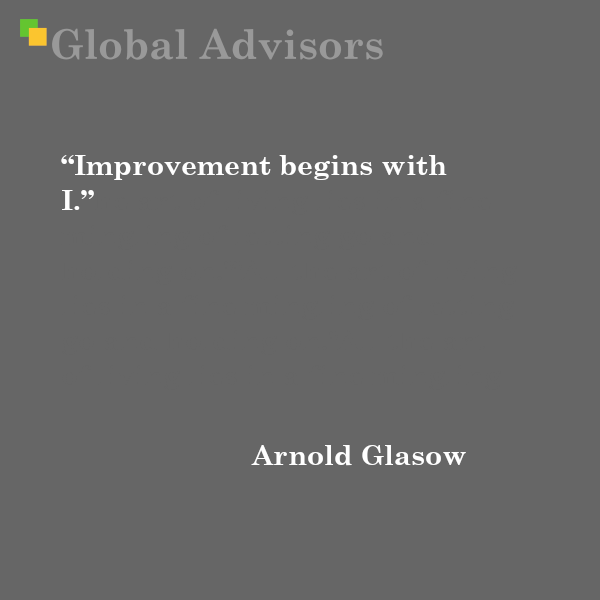
“Change your opinions, keep to your principles, change your leaves, keep intact your roots.” – Victor Hugo

“Talent is a gift, but character is a choice.” – John Maxwell
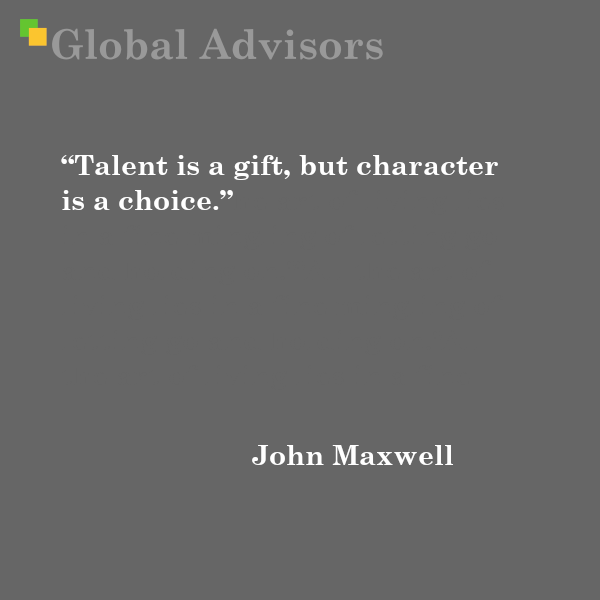
“Let the improvement of yourself keep you so busy that you have no time to criticize others.” – Roy T. Bennett
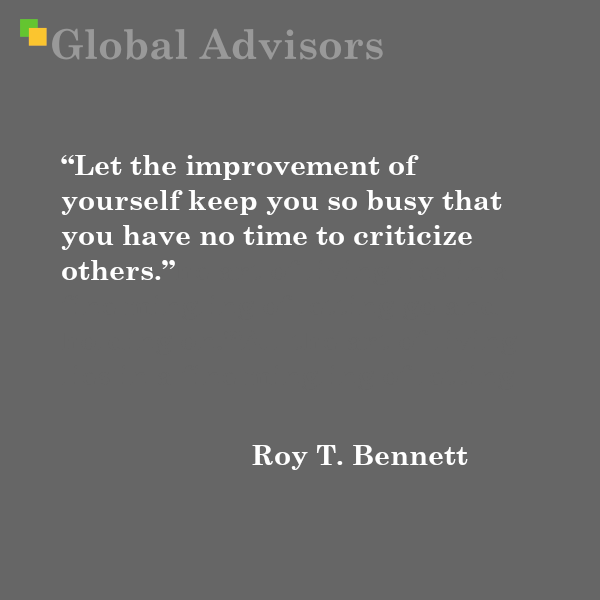
“Every time you have to speak,you are auditioning for leadership – James Humes
